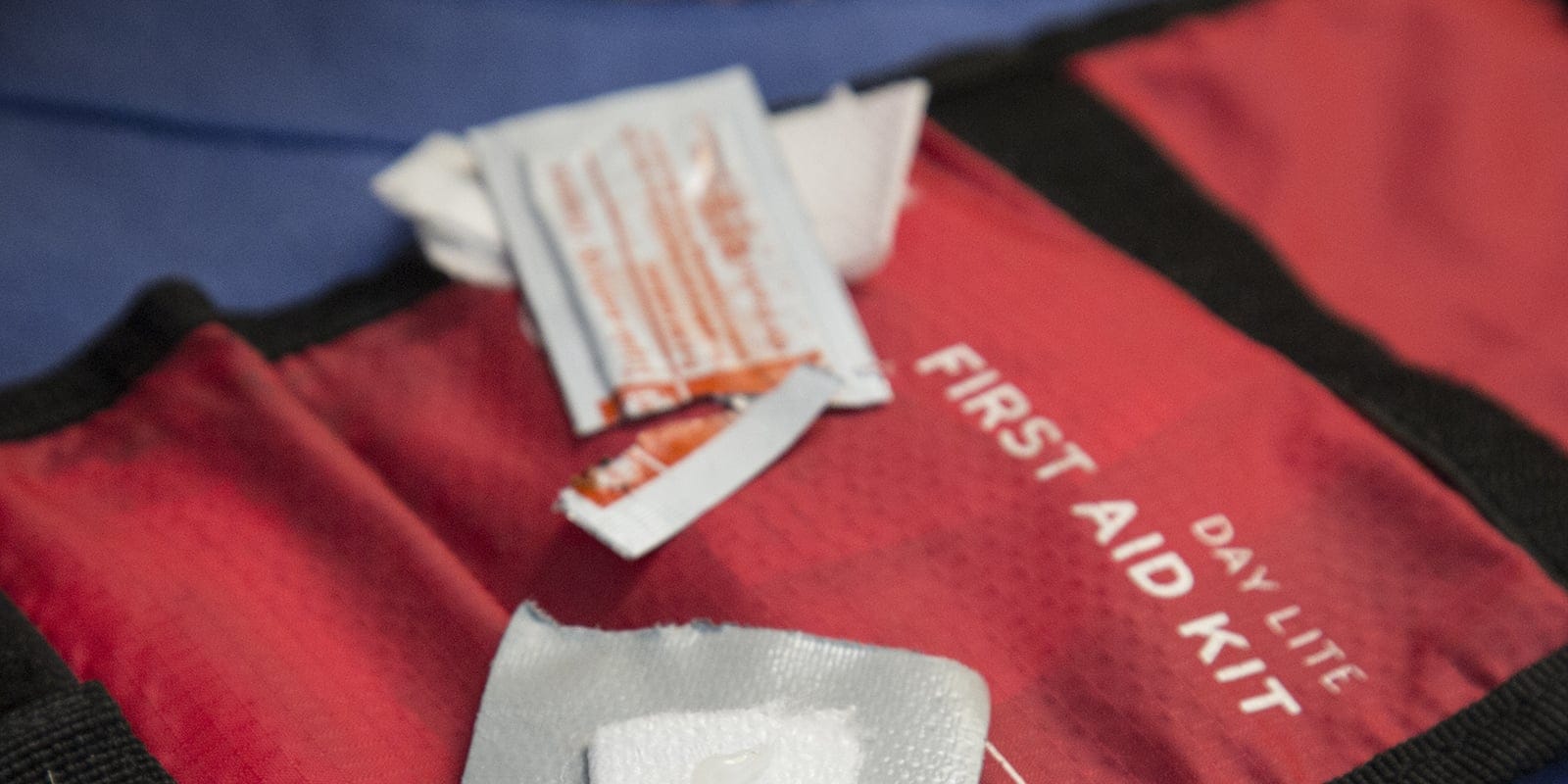If you're headed outdoors, you should always carry either a prepackaged first-aid kit or a DIY kit that you can create using our list as a guide. Knowing how to use the items in a first-aid kit is as important as having them, so consider taking a training course.
This list is a good starting point. It also includes emergency essentials that you might carry separately from a kit. You'll also need to include any prescription medications your group needs, as well as additional supplies you might need for where you're going and how long you will be out.
Printer-friendly version (PDF)
First-Aid Basic Care
- Antiseptic wipes (BZK-based wipes preferred; alcohol-based OK)
- Antibacterial ointment (e.g., bacitracin)
- Compound tincture of benzoin (bandage adhesive)
- Assorted adhesive bandages (fabric preferred)
- Butterfly bandages / adhesive wound-closure strips
- Gauze pads (various sizes)
- Nonstick sterile pads
- Medical adhesive tape (10 yd. roll, min. 1" width)
- Blister treatment
- Ibuprofen / other pain-relief medication
- Insect sting / anti-itch treatment
- Antihistamine to treat allergic reactions
- Splinter (fine-point) tweezers
- Safety pins
- First-aid manual or information cards
Wraps, Splints and Wound Coverings
- Elastic wrap
- Triangular cravat bandage
- Finger splint(s)
- SAM splint(s)
- Rolled gauze
- Rolled, stretch-to-conform bandages
- Hydrogel-based pads
- First-aid cleansing pads with topical anesthetic
- Hemostatic (blood-stopping) gauze
- Liquid bandage
Additional Medications/Treatments
- Prescription medications (e.g., antibiotics)
- Sunburn relief gel or spray
- Throat lozenges
- Lubricating eye drops
- Diarrhea medication
- Antacid tablets
- Oral rehydration salts
- Glucose or other sugar (to treat hypoglycemia)
- Injectable epinephrine (for severe allergic reactions)
- Aspirin (primarily for response to a heart attack)
Tools and Supplies
- Knife (or multi-tool with knife)
- Paramedic shears (blunt-tip scissors)
- Safety razor blade (or scalpel w/ #15 or #12 blade)
- Cotton-tipped swabs
- Standard oral thermometer
- Irrigation syringe with 18-gauge catheter
- Medical / surgical gloves (nitrile preferred; avoid latex)
- CPR mask
- Small notepad with waterproof pencil or pen
- Medical waste bag (plus box for sharp items)
- Waterproof container to hold supplies and meds
- Emergency heat-reflecting blanket
- Hand sanitizer
- Biodegradable soap
